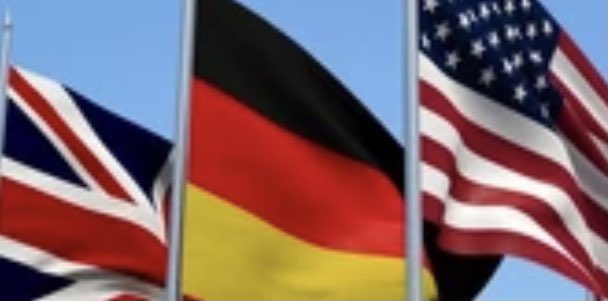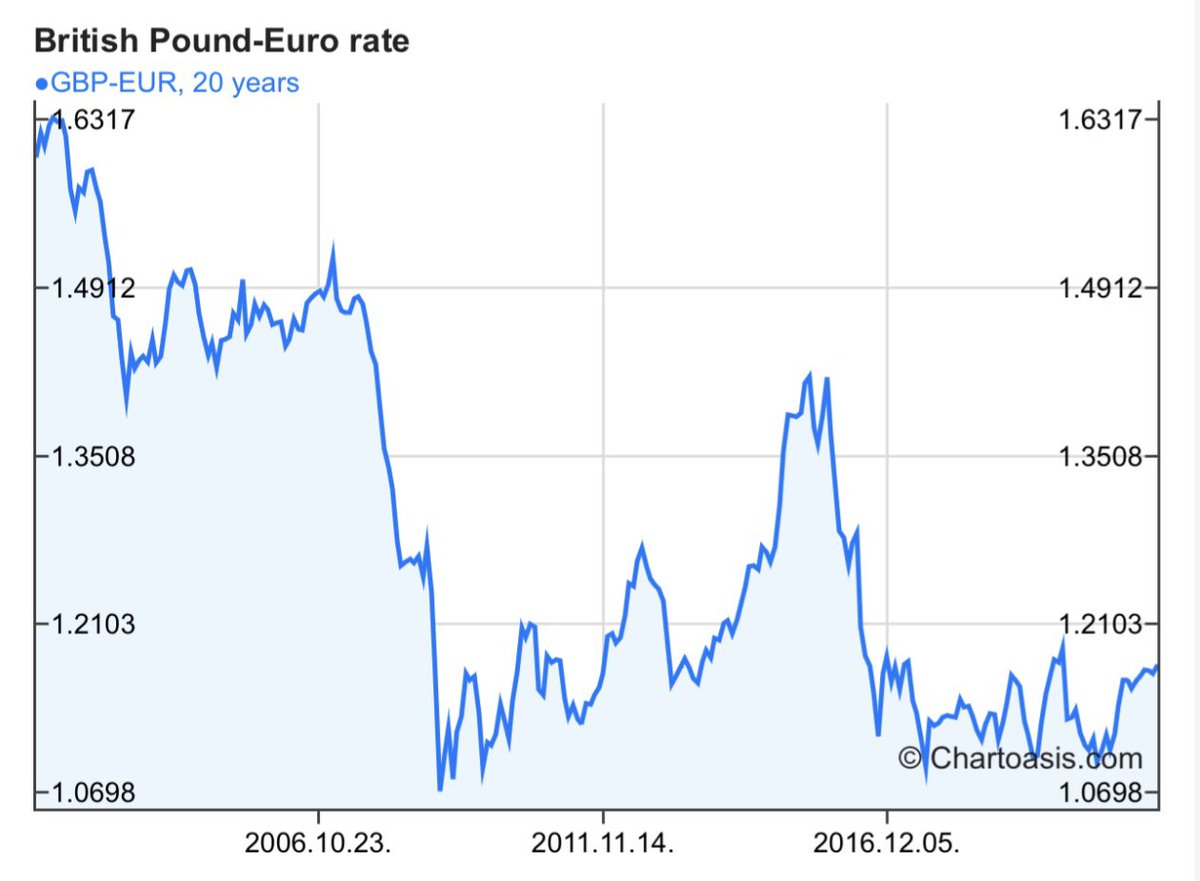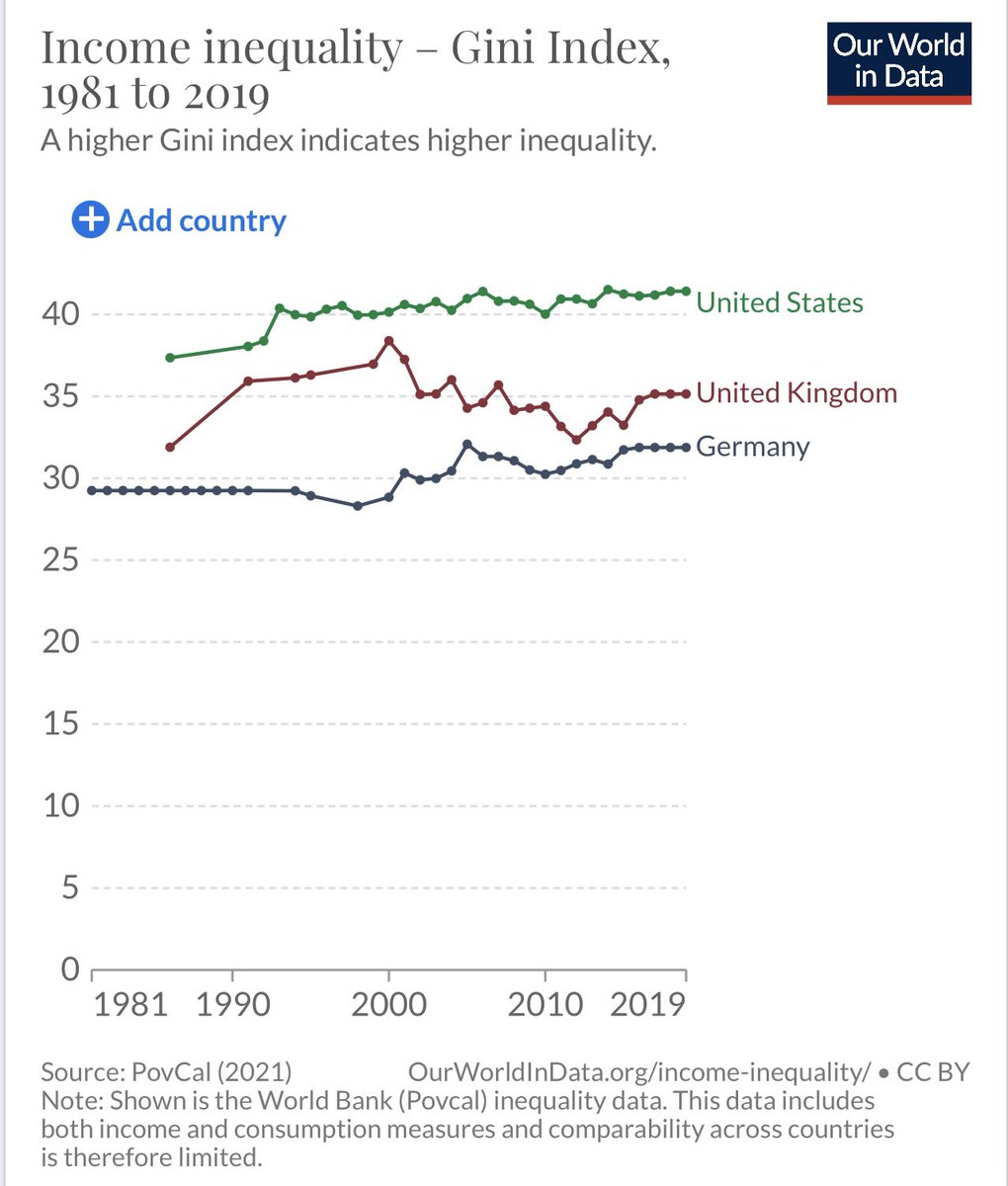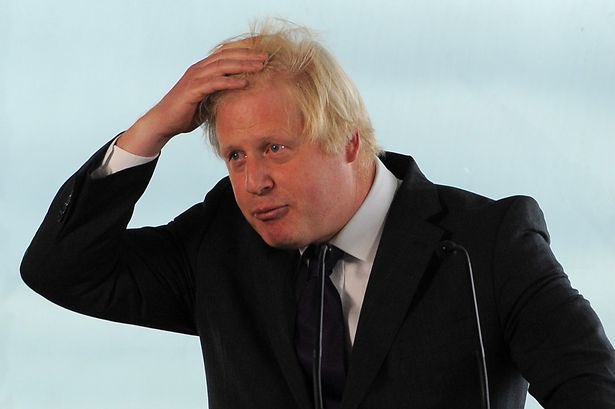
As @BorisJohnson keeps digging on “high skill, high wage”, with an approach closer to East German communism than Californian capitalism, let’s look at who did well, how the UK did, & what we can learn.
Spoiler: Mr Johnson urgently needs to reconsider his failed Brexit.
A 🧵 /1.
Spoiler: Mr Johnson urgently needs to reconsider his failed Brexit.
A 🧵 /1.

What matters to people is what their wages can buy. And whether they’re being treated fairly.
Let’s look at the Federal Republic of Germany (“West Germany” until 1990) & the UK. With the USA as global benchmark. /2.
Let’s look at the Federal Republic of Germany (“West Germany” until 1990) & the UK. With the USA as global benchmark. /2.

So, how’s that been going?
The attached chart of GDP per capita, adjusted for purchasing power & inflation, shows Germany
overtook the UK in the 1970s. They tracked each other through the era of UK EEC/EU membership for about 35 years. Until something happened. /3.
The attached chart of GDP per capita, adjusted for purchasing power & inflation, shows Germany
overtook the UK in the 1970s. They tracked each other through the era of UK EEC/EU membership for about 35 years. Until something happened. /3.

After the 2007/8 financial crash the UK was left badly behind.
The £ crashed from about €1.50 to about €1.10.
It recovered some of that ground then crashed again after David Cameron announced the EU referendum in November 2015. And after the June 2016 referendum itself. /4.
The £ crashed from about €1.50 to about €1.10.
It recovered some of that ground then crashed again after David Cameron announced the EU referendum in November 2015. And after the June 2016 referendum itself. /4.

The UK has been failing relative to Germany, since the financial crash. And since the EU referendum announcement.
Germany’s success - it also tracked the USA well, while the UK fell away - happened in the EU.
As did the UK’s performance from the early 1970s to the crash. /5.
Germany’s success - it also tracked the USA well, while the UK fell away - happened in the EU.
As did the UK’s performance from the early 1970s to the crash. /5.

What about fairness?
UK inequality increased sharply under Thatcher/Major, dropped with Blair/Brown & increased again under Cameron etc.
Germany has had consistently lower, & more or less steady, inequality.
US inequality is consistently higher (much higher than Germany). /6.
UK inequality increased sharply under Thatcher/Major, dropped with Blair/Brown & increased again under Cameron etc.
Germany has had consistently lower, & more or less steady, inequality.
US inequality is consistently higher (much higher than Germany). /6.

There’s much talk about “cheap EU labour” reducing UK pay. Obviously, Germans can’t be meant - although 0.3 million Germans were resident in the UK in 2019. Perhaps the 0.8 million resident Poles? But look at what’s happened to per capita GDP in Poland compared to the UK. /7. 



The EU cheap labour story is flaky. (And note: for the few years before the crash, UK per capita GDP still rose with Germany, yet Poland etc already had UK freedom of movement).
There’s a more obvious story. Failed post-crash economic policy. And a disastrous EU referendum. /8.
There’s a more obvious story. Failed post-crash economic policy. And a disastrous EU referendum. /8.

Perhaps you don’t like that story …
What’s undeniable is that Germany has outperformed the UK for over 70 years.
It’s done so while being in the EEC/EU for 65 years.
It’s a consistently richer, fairer society than the UK. /9.
What’s undeniable is that Germany has outperformed the UK for over 70 years.
It’s done so while being in the EEC/EU for 65 years.
It’s a consistently richer, fairer society than the UK. /9.

The UK did well in the EEC for decades.
Individual greed doesn’t seem to have been the secret. UK inequality has fluctuated: it’s been consistently higher than in the more successful German economy. (And notably higher under the Conservatives than Labour). /10.
Individual greed doesn’t seem to have been the secret. UK inequality has fluctuated: it’s been consistently higher than in the more successful German economy. (And notably higher under the Conservatives than Labour). /10.

In short, Germany’s experience contains important lessons for the UK.
Unless you’re the USA, the global hyperpower (& perhaps even if you are):
▪️greed isn’t good
▪️the EU is
▪️go figure /11. End
Unless you’re the USA, the global hyperpower (& perhaps even if you are):
▪️greed isn’t good
▪️the EU is
▪️go figure /11. End

The effect of immigration on productivity 👇
https://twitter.com/richardbentall/status/1446027259916214278
• • •
Missing some Tweet in this thread? You can try to
force a refresh












